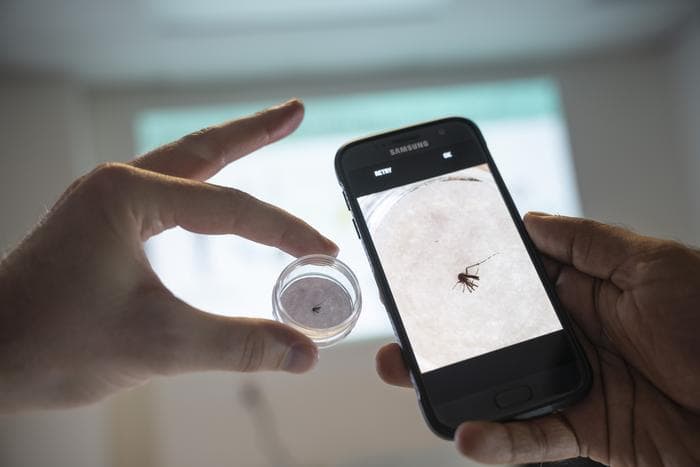
Researchers in the US are using artificial intelligence (AI) to revolutionise mosquito surveillance to help combat malaria in Africa.
The interdisciplinary team of researchers will explore innovative solutions to target malaria-infected mosquitoes in real-time.
The research is being led by University of South Florida researchers Ryan Carney, professor of integrative biology, and Sriram Chellappan, professor in the department of computer science and engineering.
Chellappan said: “We are the only team that we know of globally that can successfully enable anatomy-based classification from a single photo to identify mosquitoes.
“Our algorithm automatically identifies the head, thorax, abdomen and legs from a mosquito image, then it uses specific anatomical components to identify the mosquito type – for example, the wing for Anopheles stephensi.”
Carney and Chellappan will lead the project’s image-driven mosquito surveillance efforts by training local scientists how to leverage citizen science through mosquitodashboard.org, a global mosquito-tracking dashboard they created in 2022.
The dashboard – accessible online – integrates hundreds of thousands of mosquito observations from various platforms into an interactive, real-time dashboard and data portal, using photos that people upload from their smartphones.
Using some of the same unique algorithms, Chellappan is testing an artificial intelligence-enabled smart trap that will lure, capture and monitor Anopheles stephensi.
The goal is to deploy multiple prototypes of the patent-pending smart trap throughout west-central Africa during this project to specifically trap and automate the identification of Anopheles stephensi instantaneously.
Carney said: “Anopheles stephensi is a very efficient vector of malaria, and something that has adapted itself to the human environment.
“Therefore, it can cause huge, unprecedented epidemics in urban centres, which we have already started to see unfolding in Africa.
“Florida is ground-zero for mosquito-borne diseases in the U.S. and, although Anopheles stephensi has not yet been detected domestically, our citizen science infrastructure and species identification technologies ensure that we are prepared to fight this potential threat.”
Image: USF




